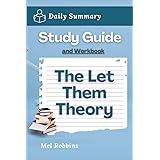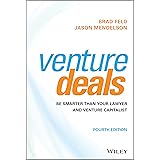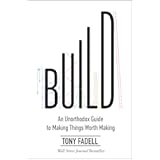Unlock Financial Freedom: Smart Ways to Start Saving Money in 2025
Are you tired of working hard just to see your money vanish? Many people feel this way. The video above explains why. Saving money in 2025 can seem challenging. Economic shifts are happening. Prices often climb higher. New strategies are needed now. This article expands on ten practical ways. These methods help you keep more cash. They avoid feelings of deprivation. Small changes bring big results. Financial control can be yours.
Track Your Money: Know Where Every Dollar Goes
Knowing where your money is going is crucial. It is a vital first step. Many people overspend. Not knowing their outflow is a common reason. Digital tools make tracking easy now. Apps like Mint are helpful. Many banking apps have AI features. These instantly categorize your spending. Imagine your money as water. If there are leaks, the bucket empties quickly. Tracking stops these leaks. It reveals surprising spending habits. For example, unused subscriptions might cost $50. Food delivery could be $300 monthly. These are wake-up calls. A financial app can be connected easily. It analyzes past spending. Shocking insights are often gained. This awareness empowers you. It allows money to be saved more effectively. Regular monitoring is key. It helps to identify financial “blind spots.”
Audit Subscriptions: Cut Unused Costs
Almost everything is subscription-based today. Netflix, Spotify, Amazon Prime are examples. Even favorite apps require payments. Auditing subscriptions every three months is smart. Ask simple questions. Is this service truly used? Can a cheaper plan be chosen? Could family members share access? Many people pay for forgotten gym memberships. Free fitness apps exist. YouTube workouts are available. Consider rotating streaming platforms. Paying for five at once is costly. One or two at a time can be enjoyed. Rotating frees up significant funds. This single action can free $50 to $300 monthly. It puts money back into your pocket. Subscriptions are sneaky expenses. They drain accounts quietly. Awareness brings control. Unused services can be cancelled. Money is then kept where it belongs. This is a critical step for saving money.
Master Meal Prep and Smart Grocery Shopping
Food is a major household expense. This reality cannot be changed. However, spending habits can be. Eating out regularly drains pockets. This happens faster than almost anything else. A strategic approach is meal preparation. Grocery shopping must be smart. Plan meals for the entire week. Shop with a detailed list. Impulse buying is then avoided. Buying in bulk saves money. Items like rice, beans, pasta are good examples. Store discount apps offer savings. Loyalty programs provide benefits. For instance, $15 spent daily on takeout totals $450 each month. Cooking at home cuts this significantly. Costs can be reduced by half or less. Healthier eating is also promoted. More money is saved. Better nutrition is gained. This strategy supports frugal living.
Embrace Secondhand: Buy and Sell for Savings
Thrift shopping is now a smart move. It is not just for being “broke.” It represents mindful spending. Apps like ThredUp and Poshmark are popular. Facebook Marketplace is also useful. Quality items are found for less. Clothes, gadgets, furniture are examples. They are bought at a fraction of new prices. Also, clutter can become cash. Unused items in your home can be sold. A wardrobe cleanup can yield $200 to $300. This money goes straight back to you. Selling gives items new life. It promotes sustainability. This approach saves money. It also helps the planet. Secondhand shopping supports smart financial habits.
Leverage Cashback and Reward Programs Wisely
Every purchase made can be smart. It can take money, or return some. Cashback apps are goldmines. Rakuten and Honey are examples. Credit card reward programs also exist. Using them responsibly is key. If $100 is spent monthly, 2% back is significant. This amounts to $240 in a year. These funds are essentially free money. Credit cards must be used carefully. The full balance must be paid monthly. Interest charges cancel benefits. Rewards are only helpful then. Responsibility is always important. Benefits are easily lost otherwise. Cashback boosts your saving money efforts. It makes every dollar stretch further. It helps improve financial health.
Automate Your Savings: Pay Yourself First
A powerful trick involves automation. Pay yourself first is the rule. Do not save what is left. Instead, save first. Then, spend what remains. This flips the script entirely. Automatic transfers are easily set up. These go to your savings account. Link it to every payday. Even $20 weekly adds up. Over a year, this grows to over $1,000. It is achieved without thinking about it. This builds a strong financial buffer. It creates a habit of saving money. Your future self is thanked for this. Small, consistent actions are powerful. They build wealth over time. This method ensures savings grow steadily.
Go Green: Cut Your Home Energy Costs
Energy bills are often skyrocketing. This is a reality in 2025. Small changes can save big money. Simple tips reduce bills. Unplug unused devices. This reduces “vampire” energy drain. Wash clothes in cold water. This saves on heating water. A smart thermostat is beneficial. It regulates heating and cooling. This optimizes energy use. It learns your habits. Think of your home as an energy-hungry machine. Small adjustments make it more efficient. Energy conservation is important. It lowers your monthly expenses. It also helps the environment. These actions contribute to frugal living. Your wallet will feel lighter.
DIY Whenever Possible: Save on Services
Convenience often comes with a price. Doing things yourself saves money. Many services can be done at home. Basic home repairs are an example. YouTube is a free teacher for these. Cooking at home replaces takeout. Haircuts can be done by brave individuals. Washing your car at home is simple. Consider the financial impact. Spending $50 twice monthly on services adds up. This totals $1,200 in a year. These are tasks many can do. Learning new skills is empowering. It cuts down on outsourcing costs. Your time is exchanged for money. This strategy is great for saving money. It builds self-reliance too. It helps your budgeting efforts.
Rethink Transportation: Drive Less, Save More
Cars are often money pits. Insurance, fuel, maintenance are costly. This is especially true in 2025. Savings can be found by rethinking travel. Use ride-sharing only when needed. Walk or bike for short trips. Public transportation passes are often cheaper. If a car is owned, consider downsizing. A fuel-efficient or hybrid option helps. Reducing car usage by 20% can save hundreds. This applies to gas and upkeep. It makes a significant difference. Public transit reduces stress. It also lowers personal expenses. This choice supports a frugal lifestyle. Transportation costs are often overlooked. They represent a large expense category. Smart choices here yield big savings. These habits boost your efforts for saving money.
Set Clear Financial Goals and Budgets
None of these strategies work alone. A clear financial goal is essential. Ask yourself important questions. What are you saving for? Is it an emergency fund? Perhaps travel is the goal. Starting a business might be the reason. Retirement planning is also vital. Answering these guides your path. Set SMART goals. These are Specific, Measurable, Achievable. They are also Relevant and Time-bound. A simple budget is then created. The 50/30/20 rule is popular. 50% for needs, 30% for wants. 20% is for savings and investments. When money has a job, it works harder. It grows more effectively for you. This structure supports saving money diligently. It creates a roadmap for your financial future.
Youth, saving money is not about being cheap. It is about being intentional. Even three or four strategies can help. You could save $200 to $300 every month. Over a year, this is thousands of dollars. These funds return to your pockets. Pick at least one strategy this week. Start applying it immediately. Small, consistent action leads to big results. This path creates financial strength. It builds a smarter financial future for you. Take control of your money in 2025.






